Our Activities
Neurological and neurodevelopmental disorders primarily affect the brain, spinal cord, and nerves of the body. These conditions can cause a range of symptoms such as paralysis, weakness, loss of coordination, cognitive impairments, behavioral issues, learning difficulties, and seizures. Over 600 neurological disorders have been identified that can occur at different stages of life, some of which are congenital while others are acquired after birth due to known or unknown causes. These conditions can lead to lifelong disabilities that restrict the day-to-day functioning of affected individuals, making them dependent on their family members or caretakers. In particular, children living with neurodevelopmental disabilities are often unable to attend school due to cognitive impairments, which can lead to unemployment and a dependent lifestyle.
With the belief that small efforts can make a significant difference in the lives of children living with neurological disabilities, New Life Nepal started its first project to serve these children and their families. The project provides residential facilities and a day care center for children with neurodevelopmental disabilities, offering necessary therapeutic interventions such as ABA therapy, Occupational therapy, Speech therapy, Aquatic therapy, Sensory integration Therapy, and a child guidance clinic.
Currently, New Life Nepal has 20 children staying in residential facilities and 12 children attending the day care center. A team of 10 staff members provides services to the children through their therapeutic intervention plan, following the guidelines and protocols of the United Nations Convention on the Rights of Persons with Disabilities (UNCRPD). NLN collaborates with national and international experts to implement different therapeutic interventions, ensuring that the children receive the best possible care and support. Through our efforts, we hope to empower children living with neurodevelopmental disabilities and provide them with the necessary tools to lead fulfilling and independent lives.
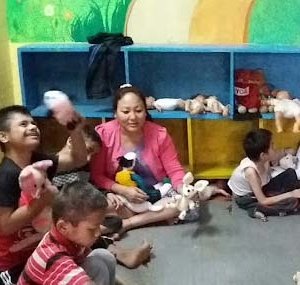
SENSORY INTEGRATION THERAPY
There is always a problem in children with neurological disabilities mainly in the integration and interpretation of sensory stimulation from the environment by the brain which will affect the children’s behavior and communication. These sensory issues may be the cause of their typical rocking, spinning and hand flapping. To address these issues, sensory integration techniques help to facilitate attention and awareness and reduce overall arousal.
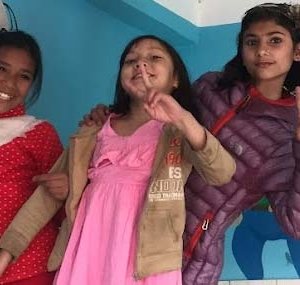
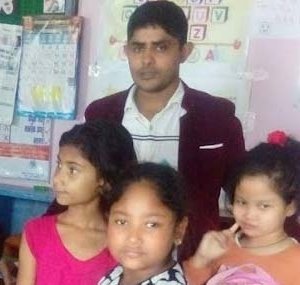
OCCUPATIONAL THERAPY
Occupational therapy provides the affected children with better approaches to keep up or modify their independence by participating in meaningful, self –directed, everyday tasks such as eating, bathing, toilet activities, dressing, and transfers etc. So an occupational therapist always focuses on highest level possible by developing strategies.
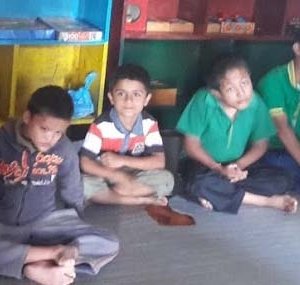
SPEECH LANGUAGE THERAPY
The role of a speech language therapy is to help children speak clearly, communicate effectively and control the muscles involved in speaking, eating, drinking and swallowing. Speech therapy can improve oral facial muscle tone and co ordination of articulators for improving speech intelligibility/clarity as well as improving oral sensory awareness, reduce drooling and solve the problem of tongue thrust. And these can be done from various exercises like oro motor exercises, blowing exercise, breathing exercise, jaw exercises, lip exercises and tongue exercises etc.
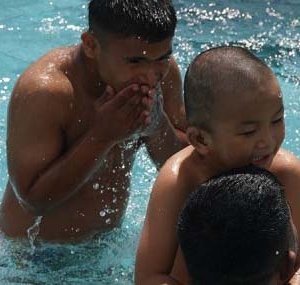
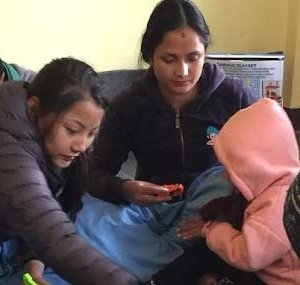
ART BASED THERAPY
Art is therapeutic in nature and connects with one’s cognitive and subconscious mind and hence aids in healing. Art Based Therapy or ABT is a non verbal form of therapy which helps children with neurological disorders to express and communicate through art. These children have difficulty in communication, so art can help children to express feelings like fear, happiness, sorrow and anger through colors and art. Depending on the skills, capabilities and needs the therapy can be modified accordingly. ABT also help to develop co-operation with children, turn taking, teamwork, sense of acceptance and other social skills.
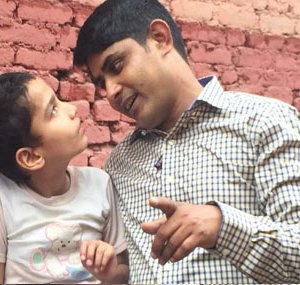
COUNSELLING AND PSYCHO-EDUCATION
Making understand about the condition of the children to the parents is always an important aspect to get full support from parents. In this process psychologist usually assess the cognitive pattern and assess
their aspect of limitations and strength on socialization and communication and prepare the parents to involve in home based interventions. Psycho- education also help parents to understand the actual condition of their children and to reduce their anxiety and distress as psychologists guided parents to overcome on their anxiety and distress related to children’s condition.

